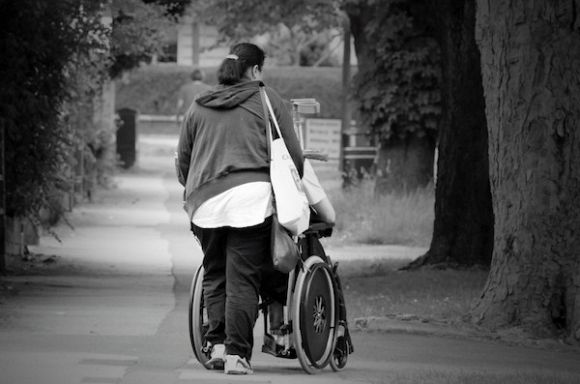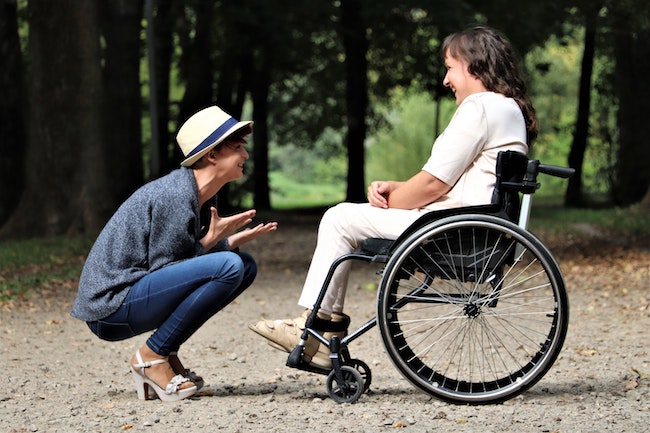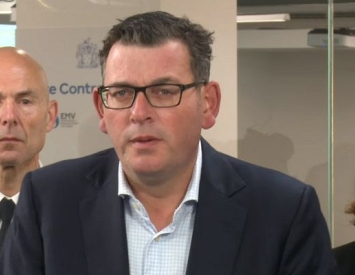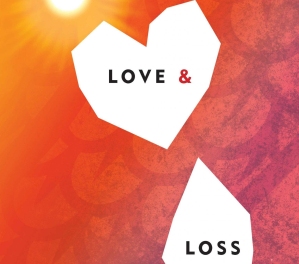In this personal account, Thea Calzoni explores the health and quality-of-life benefits of sex work in support of people, like her son, who are living with disability.
I CARE FOR my 34-year-old son who can’t write or even speak his own story.
I have written a memoir of our entwinement — it reveals uncomfortable personal details. And it asserts intimate needs. I have tried to be respectful and represent the truth.
But, as author Andrea Goldsmith puts it:
'... when someone writes a memoir they select from life and they select from memory. It is not the whole story, it is not even an accurate portrayal of part of it.'
I have offered a story that is open to question. It’s not hard to say that I wrote about my son for validation of my life and his. Harder perhaps to admit to my wanting to come out of the shadows and be recognised, celebrating the hardship of love. Wanting to be understood, as writer Clementine Ford says in an article about her book of personal essays, How We Love.
Love was my angle, right up to the chapter about a workshop I attended more than ten years ago on disability sexual rights, ways and means.
The subject was controversial then and has continued to be so, with rights for people with disability under the National Disability Insurance Scheme (NDIS) to funded sexual support contested until September 2021 — when a Federal Court ruling found that NDIS funds could be used by participants in the scheme to access sex-worker services.
I was moved to attend a disability sex workshop after my son and his young female friend had been instructed at their day program to leave sexual exploration out of their relationship. What were my son’s needs and scope for sexual expression? Did he perhaps need sex as a mechanical process, the fulfilling of a function? Or could he become involved in something more tender and consoling?
The workshop mainly covered technical aspects of sexual fulfilment and was rather dry — until a sex worker took the stage. My heart leapt. She described her work with people with disability as a careful process, where she took things slow, initiating them into a safe experience of being touched by a worker in something other than clinical personal care.
To explain the intimacy that the sex worker suggested she might offer a person with disability in my memoir, I quoted her using the term "making love". I put those words into her mouth. For this, Australian sex worker Rachel Wotton has challenged me.
She affirms that skin touch is an important human need and that it is an important element of her sex work with people with disability. However, she would never describe it as "making love" because of the need for clarity for people with intellectual disability to know the difference between a professional relationship with a sex worker and a possible love relationship with a partner.
I have admitted to Rachel that I took creative licence in using the "love" word for safe and supported sex work with a person with disability. I did this because I wanted to show it as a beneficial human service potential beyond it being a mechanical activity.
Since speaking with Rachel and watching her video Scarlet Road, I have found evidence of the health benefits and improved quality-of-life benefits of sex work for people with disability. It has become clear to me how especially important it is that people like my son have clarity around the distinction between professional relationships (such as support workers, allied health practitioners or sex workers) and free social relationships.
Recently, a regular disability support worker helped my son to understand why it was not good for him to hug his physiotherapist. She explained to him that it’s okay to hug your friends and your family but not people who are working in the gym. He understood. I know he can understand the difference between relationships with workers and relationships with friends.
He also understands the difference between the roles and activities of different support workers — a walk with this person; art with another. But what of his craving for touching a woman? His options for sensual contact with a real live woman remain elusive.
My son understands social roles and can regulate his behaviour appropriately for different social settings. There should be no problem with him understanding that a sex worker would provide different support from other support workers, professionals, family and friends. He has a right to the support of a sex worker.
Imperfect memories aside, through the light of publication I have connected with Rachel Wotton who has introduced us to agency Touching Base. I am learning how and why my son’s life can be enhanced by specialist disability sex work.
It’s not the whole story, because the story continues in life as it does in art.
Thea Calzoni is the author of the book 'Dancing with the maternal bond: Life with an unusual child'. You can follow Thea on Twitter @Calzonit and read her blog Disability Care People.
 This work is licensed under a Creative Commons Attribution-NonCommercial-NoDerivs 3.0 Australia License
This work is licensed under a Creative Commons Attribution-NonCommercial-NoDerivs 3.0 Australia License
Support independent journalism Subscribe to IA.













